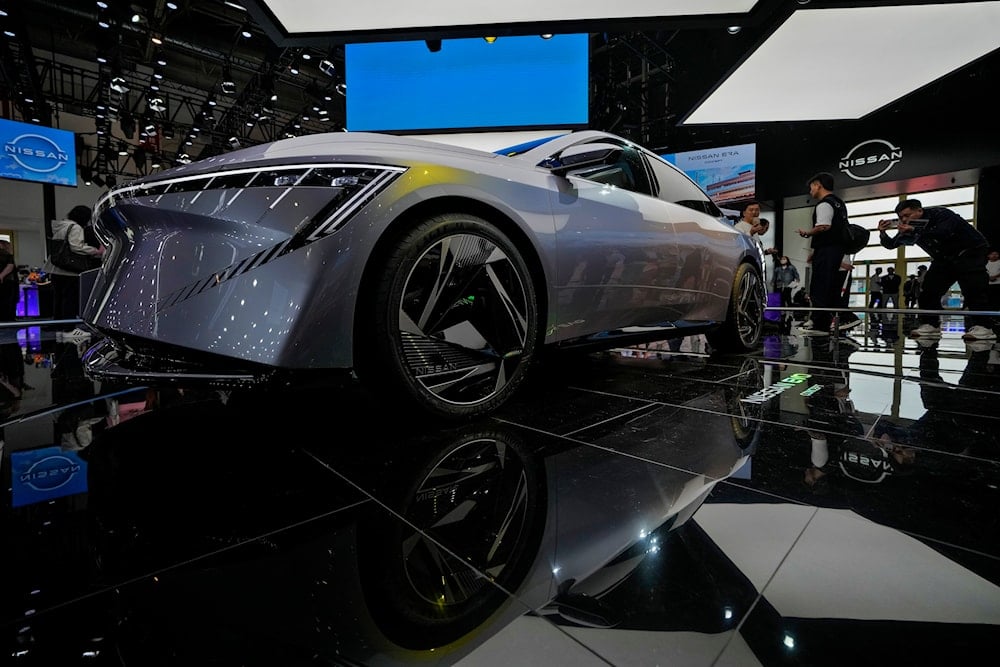EU may fully approve tariffs on Chinese EVs, final vote in October
It is anticipated that member states will vote on the tariff proposal in late October, and the decisions would go into effect in November.
-

A visitor takes a photo of a Nissan EVO Concept car model on display during the Auto China 2024 in Beijing, Sunday, April 28, 2024. (AP)
EU nations are expected to back the proposed tariffs that would be imposed on Chinese electric vehicles in November, the Financial Times reported, citing European Trade Commissioner Valdis Dombrovskis.
European Commission spokesperson Eric Mamer stated in July that the commission intended to apply import taxes on Chinese electric vehicles.
Speaking to FT, Dombrovskis said, "It's clear that member states realise the need to protect the EU’s car industry because this risk of injury is there. Chinese battery electric vehicle market share is growing very rapidly. That subsidisation is there," stressing the need for the matter "to be addressed."
It is anticipated that member states will vote on the tariff proposal in late October, with the decision going into effect in November.
China warned that additional EU tariffs on imports of Chinese electric vehicles would "harm Europe's own interests."
"It goes against the principles of market economy and international trade rules, undermines China-EU economic and trade cooperation, as well as the stability of the global automobile production and supply chain," said Chinese Foreign Ministry spokesperson Lin Jian.
In addition, the commissioner stated that future talks with Beijing will center on removing trade barriers and guaranteeing "more reciprocal trade," given that European markets are more accessible to Chinese goods and firms than the Chinese market is to Europeans.
"That argument can be made on any trade-distorting subsidies. But the point is that we have a major EU car industry, and this car industry is at risk if we allow this kind of distortion of the level playing field," Dombrovskis said.
Fear of retaliation
Last month, the European Union added extra provisional duties of up to 38% on Chinese electric car imports because of supposed "unfair" state subsidies, despite Beijing's warnings that such a move would unleash a trade war.
A European Commission probe launched last year concluded that Chinese state subsidies for EV manufacturers were unfairly undercutting European companies.
"Our investigation... concluded that the battery electric vehicles produced in China benefit from unfair subsidization, which is causing a threat of economic injury to the EU's own electric car makers," Dombrovskis said at the time.
China emerged as the clear global leader in the EV market in 2022, surpassing the combined sales of all other countries. Chinese sales were six times higher than those of second-place US. The country also accounts for 58% of all EV cars sold. The publicly listed Chinese multinational conglomerate BYD accounts for 29.6% of all EV sales in 2022.
The Chinese Chamber of Commerce to the EU slammed the latest tariffs, which on to current import duties of 10%, saying that the move is politically motivated and protectionist.

 3 Min Read
3 Min Read








